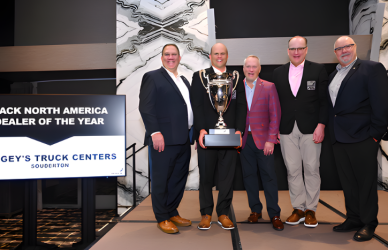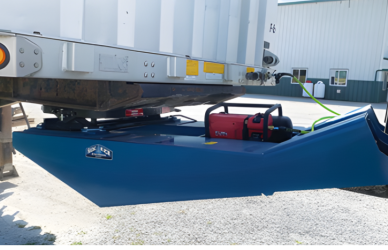In a recent decision by the 1st Circuit appellate court, it was determined that truck drivers working in teams are entitled to compensation under federal minimum wage laws for time spent in the sleeper cab, even if they are not actively sleeping.
The case centered around carrier CRST, which initially lost the lawsuit in the U.S. District Court for Massachusetts. The litigation, initiated in 2016 by several CRST drivers led by Juan Carlos Montoya, steps into uncharted territory as the appellate court suggests that no previous ruling has addressed whether team drivers should be compensated for non-sleeping time spent in the sleeper berth, beyond the mandated eight hours of sleep time under federal law.
“We note that the parties have not identified, nor have we found, any published circuit court decisions addressing whether sleeper berth time constitutes compensable work for the purposes of the Fair Labor Standards Act,” the court wrote.
This decision sets a potential precedent, differentiating from past cases, such as the significant one involving Walmart several years ago, which primarily focused on solo drivers. Team drivers, often paired to maximize operational efficiency and comply with federal hours-of-service mandates, face a distinct set of circumstances.
The question was focused on whether “the time these long-haul drivers spend in the sleeper berth is ‘on-duty’ time within the meaning of Department of Labor regulations and, if so, whether CRST must compensate a driver who is on duty for 24 hours or more, for the time that driver spends in the sleeper berth is in excess of eight hours within a full 24-hour period.”
The dispute primarily concerns the discrepancy between driving or working hours (up to 14 hours under HOS rules) and the remaining 16 hours after deducting the required eight-hour sleep period from the day’s 24 hours.
A key aspect highlighted in the appellate court’s decision is the potential impact on a driver’s compensation. A footnote in the ruling revealed that, during Montoya’s initial pay period, where he was part of a training program and received only 25 cents per mile, his hourly wage for actual working hours exceeded $10. However, if the “excess sleeper berth time” were deemed compensable, it would have resulted in his hourly wage falling below the federal minimum of $7.25 per hour.
The court concluded that time spent in the sleeper berth by the non-driving team member was not genuine free time, drawing on a Supreme Court interpretation of the Fair Labor Standards Act. The analogy of firefighters waiting in a firehouse, compensated for their readiness to respond to emergencies, was cited. In contrast, the court noted that police officers, while on call, are free to engage in non-work activities until an emergency arises.
CRST contended that the sleeper berth driver is “waiting to be engaged” and should not be compensated.
“In urging us to reach this conclusion, CRST observes that drivers can sleep, fix meals, watch television, and access the internet while in the sleeper berth,” the court said. “But the argument of the plaintiffs was that the drivers’ confinement to the restrictive environment of the sleeper berth means that such time predominantly benefits the employer, and this is compensable work.”
The appellate court, however, was unequivocal in its conclusion, emphasizing that such time in the sleeper berth is not exempt from compensation.
“CRST’s argument turns a blind eye to the limitations inherent in the drivers’ physical location,” the court wrote. “Though drivers may be able to engage in some leisure activities, the nature of these activities is restricted by the drivers’ presence in the sleeper berth of a moving truck — a small space, containing only some basic living essentials, that drivers cannot leave until the truck stops moving.”
This decision holds implications for the trucking industry at large, shedding light on the nuanced compensation considerations for team drivers beyond the traditional scope of federal regulations.
“(The) argument overlooks the Supreme Court’s jurisprudence establishing that the ability to engage in some leisure activities does not, in and of itself, render an employee’s time for the employee’s own benefit,” the court said.
Source: Freightwaves











